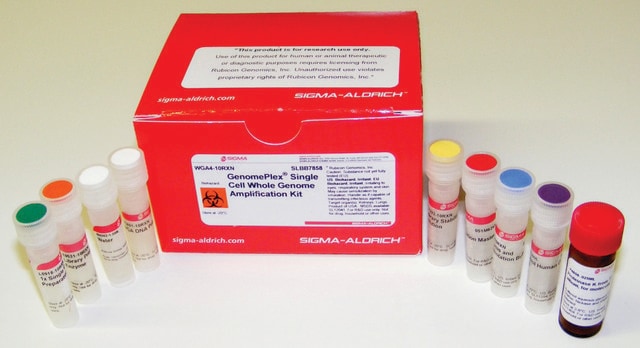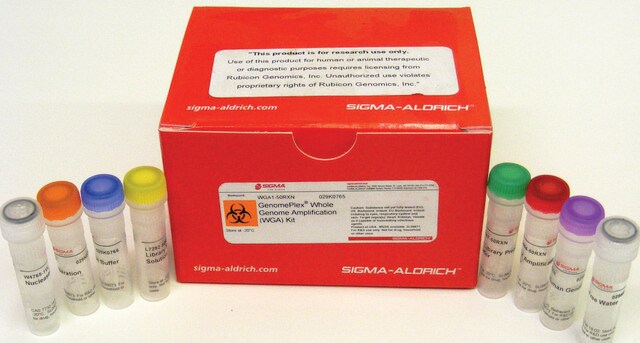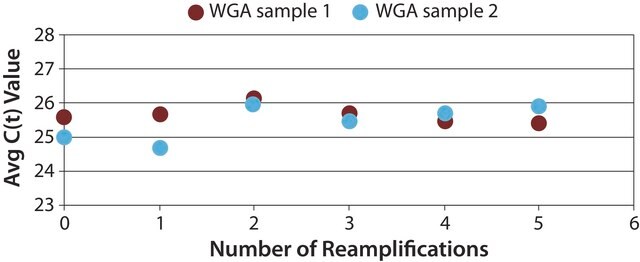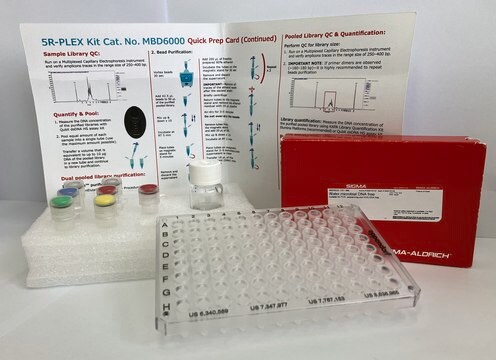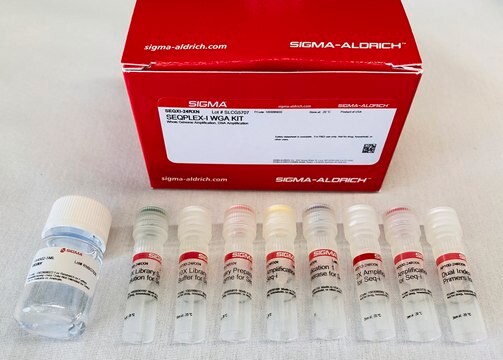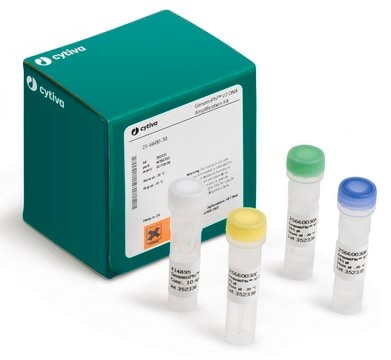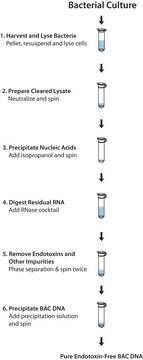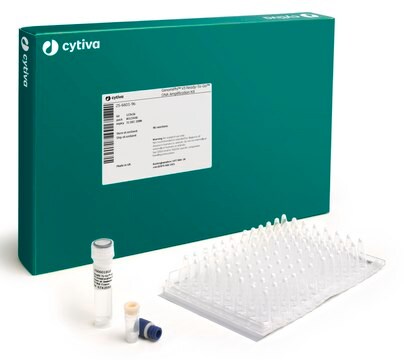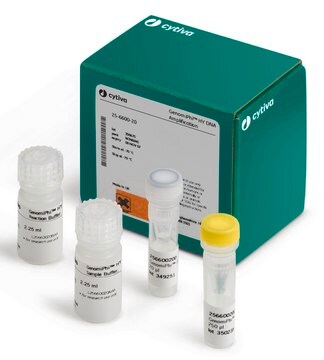WGA2
GenomePlex® Complete Whole Genome Amplification (WGA) Kit
Optimized kit with enzyme for amplifying a variety of DNA including FFPE tissue
Synonym(s):
Whole genome amplification kit
About This Item
Recommended Products
Related Categories
General description
Application
- microarray analysis
- SNP analysis
- STR analysis
- DNA archiving
Features and Benefits
- Higher yield from minimal template: Amplification of nanogram amounts of genomic DNA to microgram yields (around 10 μg) in less than about three hoursrs
- Nanograms of samples can be preserved at –20 °C for future use
- Choose from a variety of DNA sources: whole blood, buccal swab, blood card, plant, soil, & formalin-fixed paraffin-embedded tissue (FFPE)
- Whole-genome amplification (WGA) DNA polymerase increases the amplification accuracy
- Whole-genome representation with no detectable allele bias
- Compatible with many downstream applications such as TaqMan® assays, single nucleotide polymorphism (SNP) analysis, comparative genomic hybridization (CGH) analysis
Other Notes
Legal Information
Kit Components Also Available Separately
- W4502Water, Nuclease-Free Water, for Molecular BiologySDS
related product
Signal Word
Danger
Hazard Statements
Precautionary Statements
Hazard Classifications
Resp. Sens. 1
Storage Class Code
12 - Non Combustible Liquids
Flash Point(F)
Not applicable
Flash Point(C)
Not applicable
Certificates of Analysis (COA)
Search for Certificates of Analysis (COA) by entering the products Lot/Batch Number. Lot and Batch Numbers can be found on a product’s label following the words ‘Lot’ or ‘Batch’.
Already Own This Product?
Find documentation for the products that you have recently purchased in the Document Library.
Customers Also Viewed
Articles
In recent years, array-based Comparative Genomic Hybridization (aCGH) has been refined to determine chromosomal changes at progressively higher resolutions. This evolving technology is, however, hampered by the large DNA input requirement—a minimum of 150,000 copies of a human genome, or 0.5 μg, are generally needed per sample to rocess one CGH array.
In recent years, array-based Comparative Genomic Hybridization (aCGH) has been refined to determine chromosomal changes at progressively higher resolutions. This evolving technology is, however, somewhat hampered by the large DNA input requirement—a minimum of 150,000 copies of a human genome, or 0.5 μg, are generally needed per sample to process one CGH array.
GenomePlex® Whole Genome Amplification Kit: A High-Throughput Approach for Rapidly Amplifying Genomic DNA from a Variety of Biological Materials
The ultimate biological unit lies within a single cell. Many biological disciplines have taken aim to elucidate the causes of cellular differentiation at this level.
Protocols
Genomic DNA from soil samples can be easily damaged by nucleases and contaminating debris resulting in low DNA yields. As a result, the researcher’s ability to perform downstream analysis may be compromised. After isolating DNA from the soil sample, the GenomePlex® Whole Genome Amplification Protocol is followed
Whole genome amplification (WGA) of plasma and serum DNA presents a unique challenge due to the small amount of nucleic acid in such samples.
Whole Genome Amplification can be performed on DNA extracted in many ways. We offer many products for DNA extraction, including the GenElute™ Blood Genomic DNA Kit, GenElute Mammalian Genomic DNA Miniprep Kit and the GenElute Plant Genomic DNA M iniprep.
Whole blood is a common source of material used to perform genetic analysis. Many times genomic DNA isolated from whole blood samples is of low yield. This protocol is a simple method to isolate DNA from fresh or aged whole blood products. Once the DNA is isolated, it can be amplified using the GenomePlex® Whole Genome Amplification protocol.
Related Content
GenomePlex® Whole Genome Amplification is the method of extracting DNA from the animal sample. GenomePlex® products have been used to amplify genomic DNA from chicken, porcine, bovine, fish, and shrimp source.
Our team of scientists has experience in all areas of research including Life Science, Material Science, Chemical Synthesis, Chromatography, Analytical and many others.
Contact Technical Service